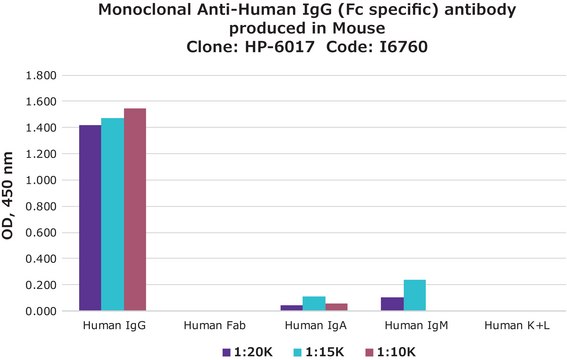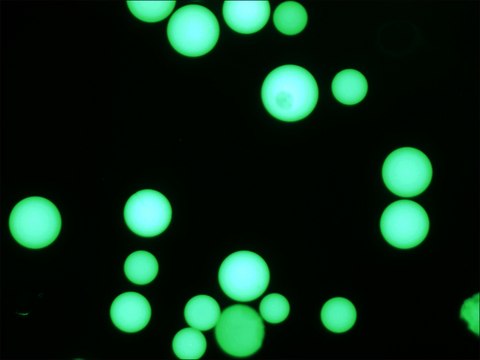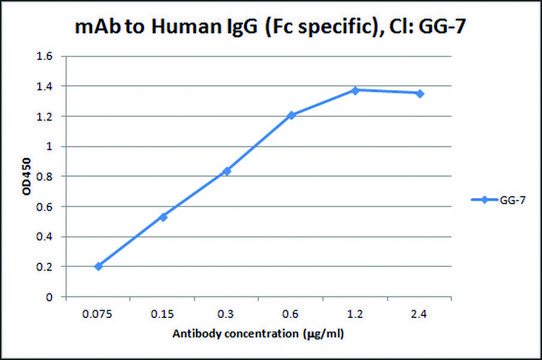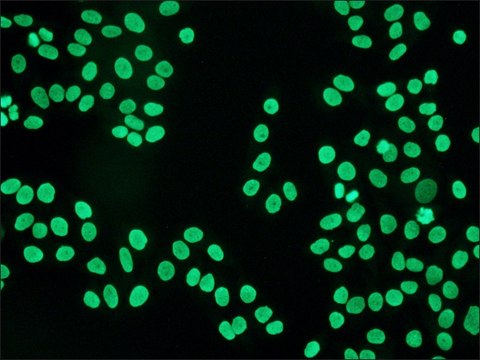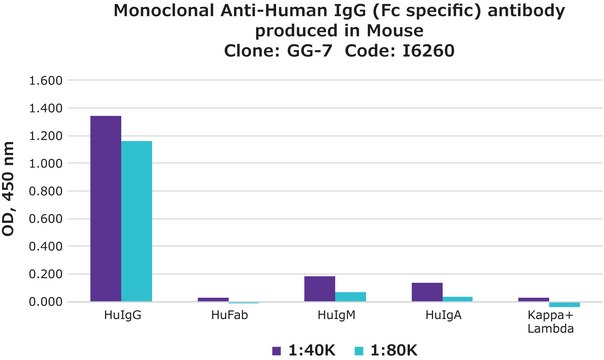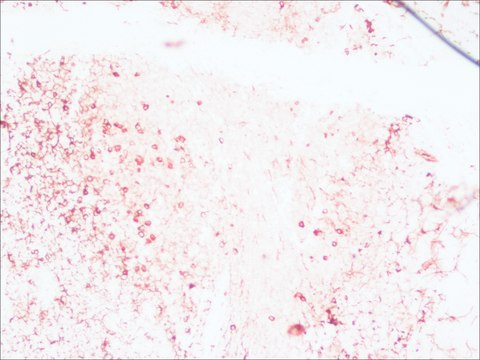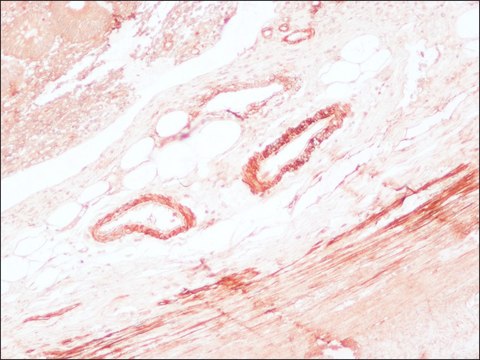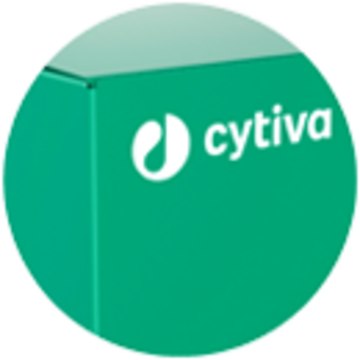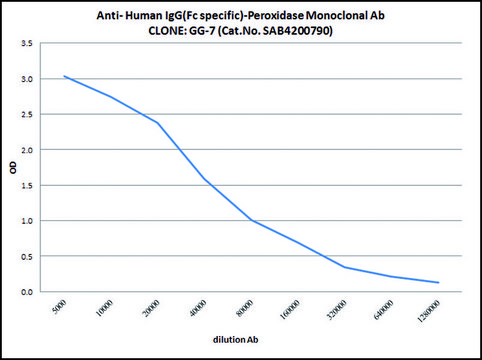SAB4200743
Anti-Human IgG (Fc specific)-Peroxidase antibody, Mouse monoclonal
clone HP-6017, purified from hybridoma cell culture
Synonyme(s) :
Anti-Immunoglubulin G (Fc specific)
Sélectionner une taille de conditionnement
$599.00
Sélectionner une taille de conditionnement
About This Item
$599.00
Produits recommandés
Source biologique
mouse
Niveau de qualité
Conjugué
peroxidase conjugate
Forme d'anticorps
purified from hybridoma cell culture
Type de produit anticorps
primary antibodies
Clone
HP-6017, monoclonal
Forme
lyophilized powder
Espèces réactives
human
Concentration
~2 mg/mL
Technique(s)
ELISA: 1:80,000-1:160,000 using 5 μg/mL Human IgG myeloma for coating
1 of 4
Cet article | SAB4200790 | SAB4200791 | SAB4200755 |
|---|---|---|---|
| clone HP-6017, monoclonal | clone GG-7, monoclonal | clone GG-6, monoclonal | clone GE-1, monoclonal |
| species reactivity human | species reactivity human | species reactivity human | species reactivity human |
| antibody form purified from hybridoma cell culture | antibody form purified from hybridoma cell culture | antibody form purified from hybridoma cell culture | antibody form purified from hybridoma cell culture |
| biological source mouse | biological source mouse | biological source mouse | biological source mouse |
| conjugate peroxidase conjugate | conjugate peroxidase conjugate | conjugate peroxidase conjugate | conjugate peroxidase conjugate |
| form lyophilized powder | form lyophilized powder | form lyophilized powder | form lyophilized powder |
Description générale
Immunogène
Application
Actions biochimiques/physiologiques
Forme physique
Vous ne trouvez pas le bon produit ?
Essayez notre Outil de sélection de produits.
Code de la classe de stockage
12 - Non Combustible Liquids
Classe de danger pour l'eau (WGK)
WGK 2
Point d'éclair (°F)
Not applicable
Point d'éclair (°C)
Not applicable
Faites votre choix parmi les versions les plus récentes :
Certificats d'analyse (COA)
Vous ne trouvez pas la bonne version ?
Si vous avez besoin d'une version particulière, vous pouvez rechercher un certificat spécifique par le numéro de lot.
Déjà en possession de ce produit ?
Retrouvez la documentation relative aux produits que vous avez récemment achetés dans la Bibliothèque de documents.
Notre équipe de scientifiques dispose d'une expérience dans tous les secteurs de la recherche, notamment en sciences de la vie, science des matériaux, synthèse chimique, chromatographie, analyse et dans de nombreux autres domaines..
Contacter notre Service technique